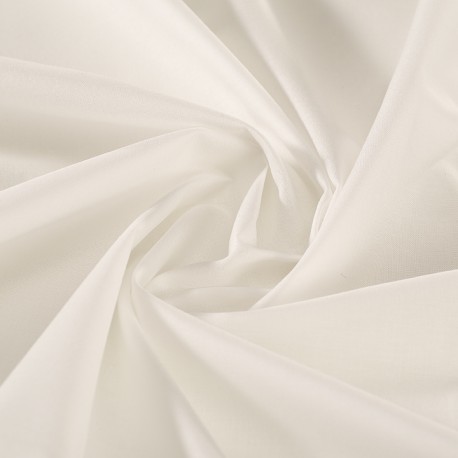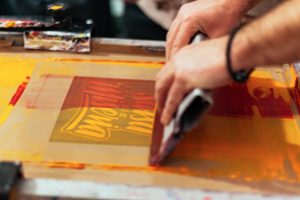In the high-stakes world of fashion, launching a new clothing line involves more than just creative design and strategic marketing. An equally important, albeit less glamorous aspect, is production planning and management. A critical component of this complex process is ensuring production quality control. This process, if managed effectively, can be the linchpin for a successful clothing line launch.
Quality control (QC) in the production process is a methodical approach to ensure that the finished product meets the brand’s standards and customer expectations. QC is not a singular event but a series of checks woven into every step of the production process, from sourcing raw materials to shipping the final product. The first step in ensuring QC is to establish clear, measurable standards. This involves defining what ‘quality’ means for the brand. It could relate to the durability of the fabric, the accuracy of sizing, the neatness of stitching, or the consistency of color. These standards must be communicated clearly to the clothing manufacturer, forming the basis for all subsequent QC checks.
Once standards are defined, the next step is to incorporate QC checks at various stages of the production process. During the sourcing phase, for instance, raw materials should be inspected for any defects, incorrect textures, or colour discrepancies. Ensuring the quality of inputs at this stage can prevent many issues down the line. The production phase, where the actual garment-making happens, is crucial for QC. Here, regular checks should be conducted to monitor the consistency of cuts, the accuracy of seams, and adherence to design specifications. By doing so, any deviations can be caught early, minimizing wastage and preventing flawed pieces from reaching the final stage.
Post-production, each garment should undergo a final comprehensive QC check. This should cover everything from minor details like button alignment and zipper functionality to major issues like sizing accuracy and design conformity. This rigorous final check ensures that only those garments that meet the brand’s quality standards make it to the distribution phase. While these checks are essential, it’s equally important to remember that QC is not a one-size-fits-all process. What works for one brand might not work for another. Factors such as the brand’s niche, target audience, and price point can significantly influence the QC process. A luxury brand, for instance, may place a higher emphasis on hand-stitching quality, while a fast-fashion brand may focus more on speed and scale of production.
Moreover, effective QC requires collaboration and transparent communication with the clothing manufacturer. It’s vital to discuss potential issues, understand their root causes, and work together to find solutions. This partnership approach not only improves the quality of the final product but also fosters a stronger, more efficient working relationship. Another key aspect of QC is feedback and continual improvement. This involves analyzing data from QC checks, customer reviews, and return rates to identify patterns and recurring issues. These insights can then be used to refine the QC process and prevent similar issues in the future.
Quality control is not just about preventing defective products from reaching customers. It’s a commitment to consistent excellence, a promise that every piece a customer purchases meets a certain standard of quality. This commitment can significantly enhance a brand’s reputation, customer satisfaction, and ultimately, market success. This truth is well understood by reputable manufacturers like AVmade, who are best known for their unwavering commitment to quality in the USA. When launching a new clothing line, partnering with a dedicated manufacturer like AVmade and ensuring QC from the onset can help prevent costly mistakes, enhance customer satisfaction, and reinforce the brand’s reputation for quality.
AVmade has made a name for itself in the fashion industry by consistently delivering high-quality garments that meet the rigorous standards of its clients. Their meticulous, ongoing QC process not only checks for defects but also ensures that every single piece aligns perfectly with the brand’s vision and design specifications. This commitment to quality control sets a brand like AVmade apart in the competitive world of fashion. Their proactive approach to QC fosters trusts with clients, as they know that AVmade’s products will always meet or exceed expectations. With AVmade, brands can be confident that their clothing line will be produced to the highest standards, resulting in satisfied customers and a strengthened reputation for quality. So, when it comes to launching a new clothing line, a partnership with a manufacturer like AVmade, known for its stringent quality control, can truly make a difference. It’s not just about producing clothes; it’s about crafting garments that embody the brand’s identity and promise to its customers. That’s the AVmade difference.
Production Quality Control
In the high-stakes world of fashion, launching a new clothing line involves more than just creative design and strategic marketing. An equally important, albeit less glamorous aspect, is production planning and management. A critical component of this complex process is ensuring production quality control. This process, if managed effectively, can be the linchpin for a successful clothing line launch.
Quality control (QC) in the production process is a methodical approach to ensure that the finished product meets the brand’s standards and customer expectations. QC is not a singular event but a series of checks woven into every step of the production process, from sourcing raw materials to shipping the final product. The first step in ensuring QC is to establish clear, measurable standards. This involves defining what ‘quality’ means for the brand. It could relate to the durability of the fabric, the accuracy of sizing, the neatness of stitching, or the consistency of color. These standards must be communicated clearly to the clothing manufacturer, forming the basis for all subsequent QC checks.
Once standards are defined, the next step is to incorporate QC checks at various stages of the production process. During the sourcing phase, for instance, raw materials should be inspected for any defects, incorrect textures, or color discrepancies. Ensuring the quality of inputs at this stage can prevent many issues down the line. The production phase, where the actual garment-making happens, is crucial for QC. Here, regular checks should be conducted to monitor the consistency of cuts, the accuracy of seams, and adherence to design specifications. By doing so, any deviations can be caught early, minimizing wastage and preventing flawed pieces from reaching the final stage.
Post-production, each garment should undergo a final comprehensive QC check. This should cover everything from minor details like button alignment and zipper functionality to major issues like sizing accuracy and design conformity. This rigorous final check ensures that only those garments that meet the brand’s quality standards make it to the distribution phase. While these checks are essential, it’s equally important to remember that QC is not a one-size-fits-all process. What works for one brand might not work for another. Factors such as the brand’s niche, target audience, and price point can significantly influence the QC process. A luxury brand, for instance, may place a higher emphasis on hand-stitching quality, while a fast-fashion brand may focus more on speed and scale of production.
Moreover, effective QC requires collaboration and transparent communication with the clothing manufacturer. It’s vital to discuss potential issues, understand their root causes, and work together to find solutions. This partnership approach not only improves the quality of the final product but also fosters a stronger, more efficient working relationship. Another key aspect of QC is feedback and continual improvement. This involves analyzing data from QC checks, customer reviews, and return rates to identify patterns and recurring issues. These insights can then be used to refine the QC process and prevent similar issues in the future.
Quality control is not just about preventing defective products from reaching customers. It’s a commitment to consistent excellence, a promise that every piece a customer purchases meets a certain standard of quality. This commitment can significantly enhance a brand’s reputation, customer satisfaction, and ultimately, market success. This truth is well understood by reputable manufacturers like AVmade, who are best known for their unwavering commitment to quality in the USA. When launching a new clothing line, partnering with a dedicated manufacturer like AVmade and ensuring QC from the onset can help prevent costly mistakes, enhance customer satisfaction, and reinforce the brand’s reputation for quality.
AVmade has made a name for itself in the fashion industry by consistently delivering high-quality garments that meet the rigorous standards of its clients. Their meticulous, ongoing QC process not only checks for defects but also ensures that every single piece aligns perfectly with the brand’s vision and design specifications. This commitment to quality control sets a brand like AVmade apart in the competitive world of fashion. Their proactive approach to QC fosters trusts with clients, as they know that AVmade’s products will always meet or exceed expectations. With AVmade, brands can be confident that their clothing line will be produced to the highest standards, resulting in satisfied customers and a strengthened reputation for quality. So, when it comes to launching a new clothing line, a partnership with a manufacturer like AVmade, known for its stringent quality control, can truly make a difference. It’s not just about producing clothes; it’s about crafting garments that embody the brand’s identity and promise to its customers. That’s the AVmade difference.
Scaling Production As The Brand Grows







